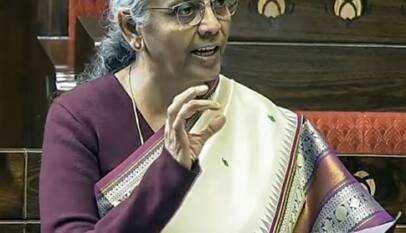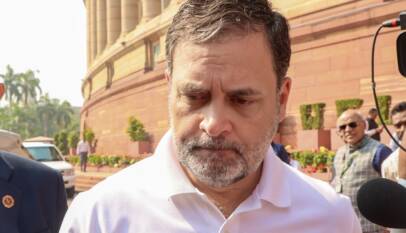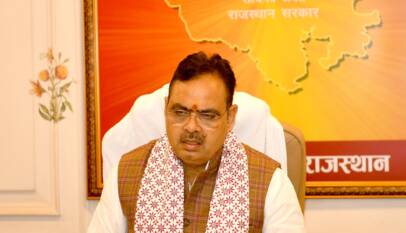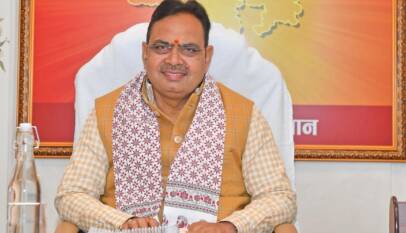It’s time to empathise with and provide relief to flood-hit people; govt stands with every victim: CM Yogi.
Chief Minister Yogi Adityanath, in a high-level meeting on Monday reviewed the ongoing efforts to ensure the safety and convenience of the public, as well as the protection of agricultural crops and livestock in light of the flooding and waterlogging in various districts of the state, providing necessary guidelines. District Magistrates of flood affected districts informed the Chief Minister about the flood situation in their respective areas as well as the ongoing relief and rescue operations.
In the meeting, the Chief Minister was informed that, as of today, 1,571 villages across 69 tehsils in 20 districts, as well as urban areas in Bareilly, Pilibhit, and Shahjahanpur, have been impacted by the floods. Consequently, a total of 1.48 million citizens have been affected, including 529,000 people who have experienced damage to their properties, such as agriculture, homes, household goods, and livestock. Approximately 319,000 hectares have been affected by waterlogging. Ground teams are being formed to survey and confirm agricultural damage based on satellite data, and drone surveys are also being arranged.
*Major guidelines given by the Chief Minister in the meeting are the following….*
Since June 1st this year, the state has received 242.50 mm of rainfall, exceeding the normal average of 220 mm. Weather experts predict the likelihood of heavy rainfall in eastern Uttar Pradesh until July 22nd. Continuous monitoring of weather conditions is advised. All district administrations, including the Relief Commissioner’s Office, should remain on high alert 24X7.
In the last few days, there have been distressing reports of loss of life and property in several areas due to floods, lightning, or drowning. This is a time for assistance and compassion. Immediate support must be extended to affected families. Officers should enhance coordination to prevent further disasters. It is essential for all personnel to treat flood victims with kindness and respect.
In cases where crops have been damaged by floods, land eroded by rivers, or household goods washed away, assistance should be disbursed within 24 hours. Agricultural crop assessments should be promptly conducted, and assistance funds should only be distributed through local public representatives.
Continuous monitoring of flood and heavy rainfall situations is imperative. The water levels of all rivers and embankments must be monitored round-the-clock. NDRF, SDRF/PAC flood units, and disaster management teams should be on high alert continuously in affected districts. Disaster Management Mitra and Civil Defence volunteers should be deployed as required.
Food packets and essential ration supplies must be promptly provided to flood victims under all circumstances. It is crucial to ensure both the quality and quantity of food and grains, with no compromises tolerated in this regard.
In flood-affected villages experiencing waterlogging, animals should be relocated to safer locations as necessary. Selection of these locations should consider local conditions, with adequate provisions made for animal fodder.
Availability of anti-snake venom and anti-rabies injections should be ensured in all hospitals in flood affected areas. Even if there is only one snakebite victim, ensure that he is treated.
The early warning alert being sent by the Relief Commissioner should be sent to the general public in the concerned areas immediately and the disaster protocol followed strictly. A press release should be issued at the district level. Necessary information should be made available to the people for their safety.
We need to make concerted efforts to address both flood and waterlogging issues. Given the potential for urban flooding, it is crucial to clean drains in these areas and ensure that pumping stations remain operational to drain water from low-lying areas. Additionally, alternative arrangements for generators should be put in place to support the functioning of pumping stations.
Necessary facilities should be made available to the general public during festivals. Respect religious tradition/faith, but no action should violate tradition. There should not be any such incident which hurts the sentiments of people of other religions. Anarchy cannot be accepted in the name of religious events. Deal strictly with anarchic elements. All necessary efforts should be made keeping in view the local needs so that every festival is celebrated in peace and harmony.
All District Magistrates, BSA, ABSA should communicate with the local teacher representatives, address their queries and resolve their problems. They should also gather reports from the teacher representatives and send them to the headquarters. It should be ensured that the teaching-learning process continues smoothly.
Bangladesh Votes for Change as BNP Surges Ahead in Post-Hasina Election
Dhaka, Feb 2026 :Vote counting began in Bangladesh late Thursday after polling concluded f…




















